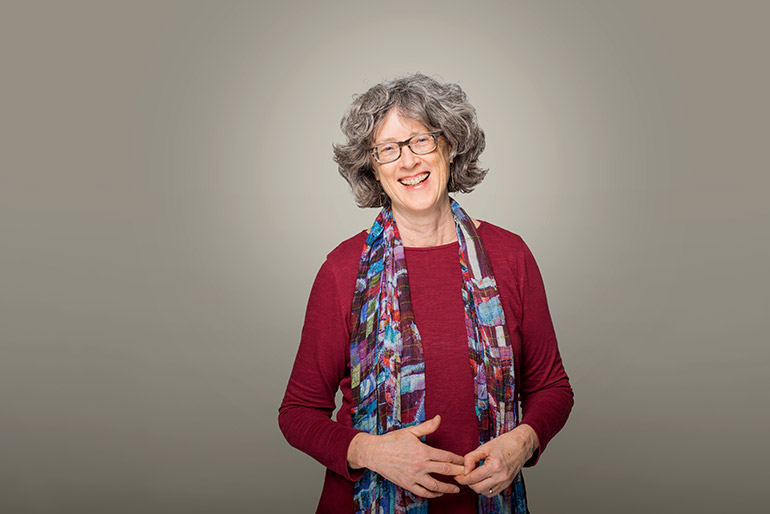
Nancy Holmes, poet and associate professor in UBC Okanagan's Faculty of Creative and Critical Studies.
UBCO's Nancy Holmes explains why we turn to poetry in the face of adversity
In this unprecedented time of fear, bewilderment and isolation, poetry is a beacon. It speaks to the complex emotions that are unleashed at times like this, says Nancy Holmes, poet and associate professor in UBC Okanagan's Faculty of Creative and Critical Studies.
"It is hard to express our deepest anxieties and longings, so we turn to poetry especially in times of intense disruption," she explains. "Poetry's job is to try to say what cannot be said."
This is why, she notes, we want poetry for special occasion cards, why we recite poems at funerals and why we listen to songs when we are in love. In World War I, she says, The Oxford Book of English Verse was one of the most well-read books in the trenches. Poetry is our go-to art in times of upheaval and catastrophe.
Right now, people are reeling with massive cultural and personal shifts as COVID-19 affects everything that was once normal. These changes are disturbing and incomprehensible at some level. Finding poetry that speaks to individuals might help get them through the next few weeks, Holmes says.
"These days, certain lines of poetry are coming unbidden into my head, like Irish poet WB Yeats' 'Things fall apart/ The centre cannot hold' and the American poet Carmen Tafolla's update on this phrase: 'Things falls apart/ sometimes people too.' These two phrases show that poetry addresses the big picture as well as the most intimate personal experiences."
Most of us, she adds, are in the midst of both social and personal confusion this month.
As we move through the many uncertainties and alarms of this pandemic, she says poetry gives us a way to live with our inner turmoil.
"Most of us are experiencing a shock to our daily lives, but there are also people who are sick or who have lost people they love," Holmes says. "For millennia, poetry has been an art that people turn to in order to cope with these traumatic experiences."
She argues that art is an essential way human beings learn about, explore and express their understanding of the world, with its final form only limited by the extent of human creativity.
"From paintings, sculptures and mosaics to literature, theatrical performances and architecture, art has helped humanity learn about ourselves and our relationship to other people and the universe," says Holmes. "Poetry, along with music, seems to be the art we are drawn to in times of intense personal and social transformations."
Holmes says that there is a poem for nearly every feeling and situation human beings have encountered, and new poems are being written to explore what it is like to be alive now. She says that reading poetry offers benefits of consolation, release and enlightenment. But she also encourages people to write their own poetry.
"Writing a few poems is a nourishing way to spend a few hours," she says. "I really encourage everyone to sit down and express feelings, terrors or love for people and the planet. It can be genuinely therapeutic."
About UBC's Okanagan campus
UBC's Okanagan campus is an innovative hub for research and learning founded in 2005 in partnership with local Indigenous peoples, the Syilx Okanagan Nation, in whose territory the campus resides. As part of UBC-ranked among the world's top 20 public universities-the Okanagan campus combines a globally recognized UBC education with a tight-knit and entrepreneurial community that welcomes students and faculty from around the world in British Columbia's stunning Okanagan Valley.






